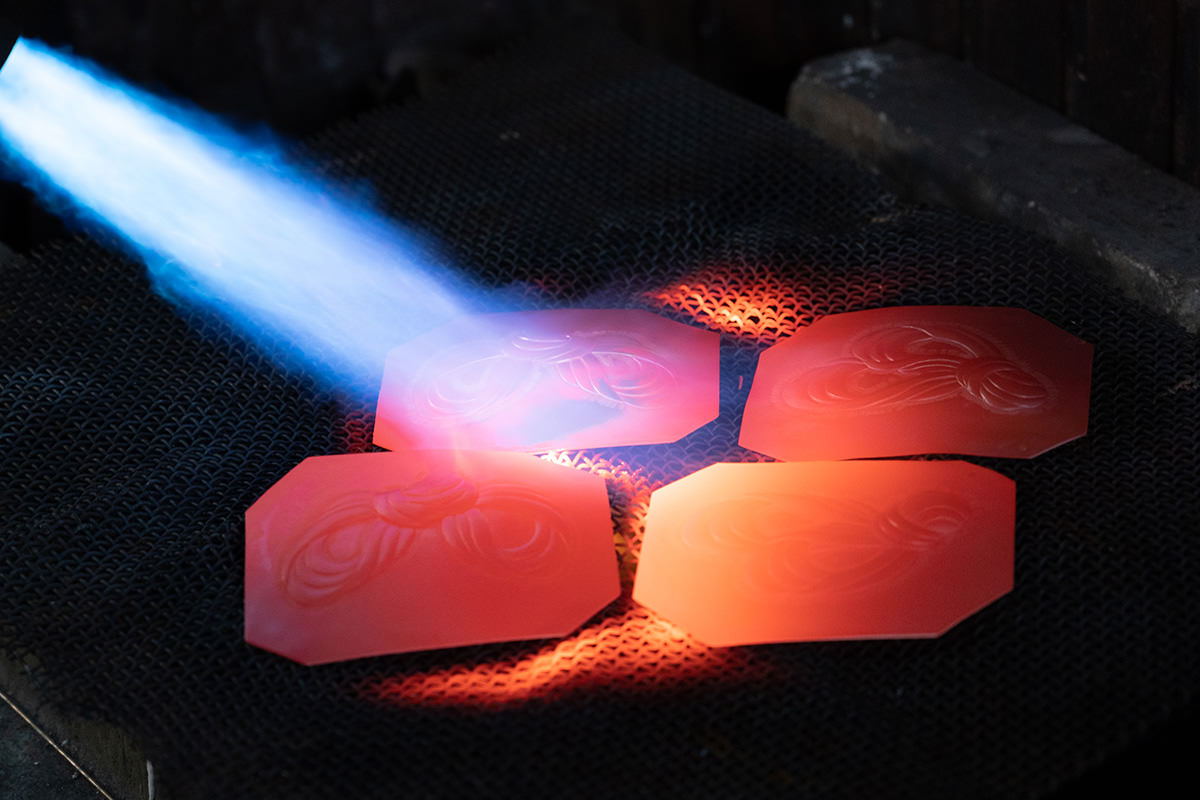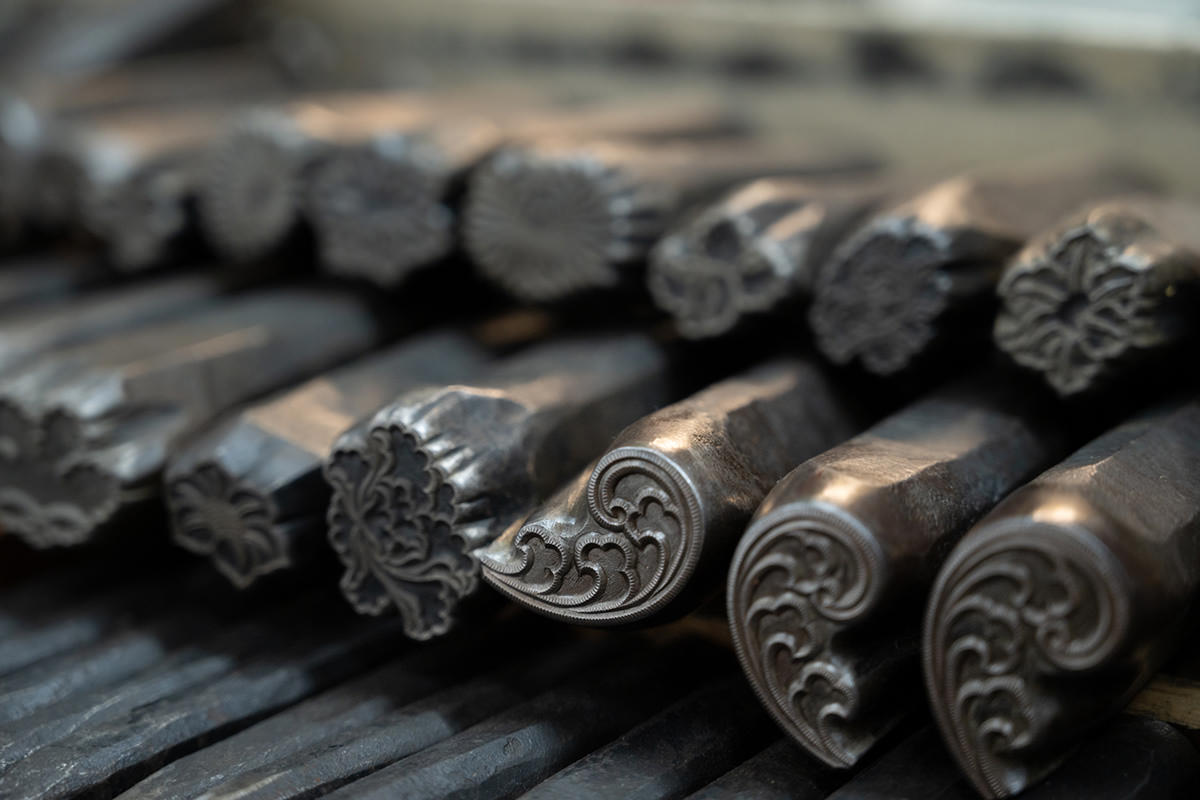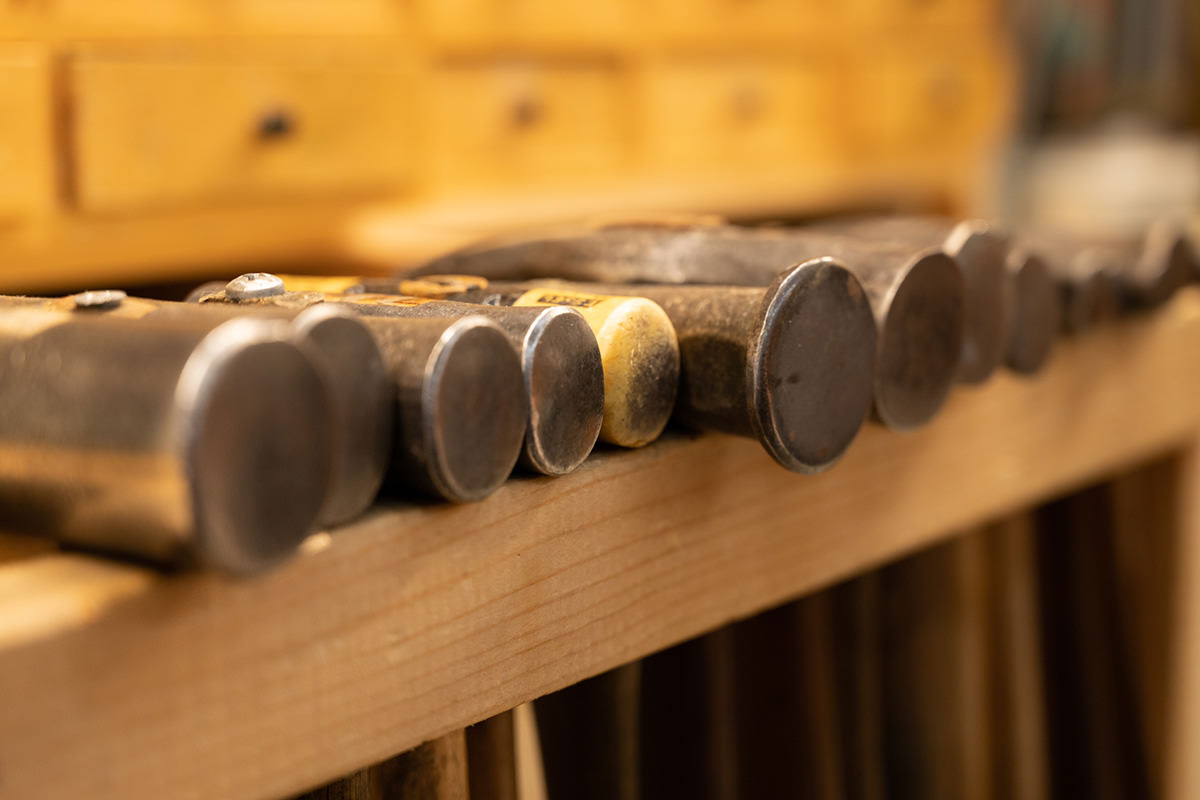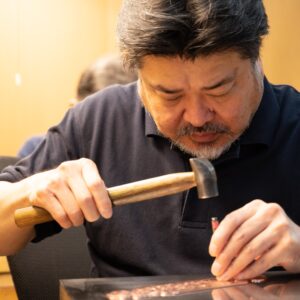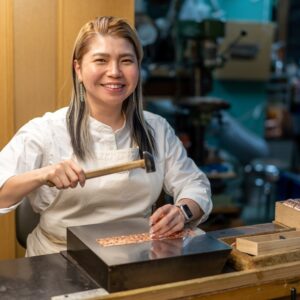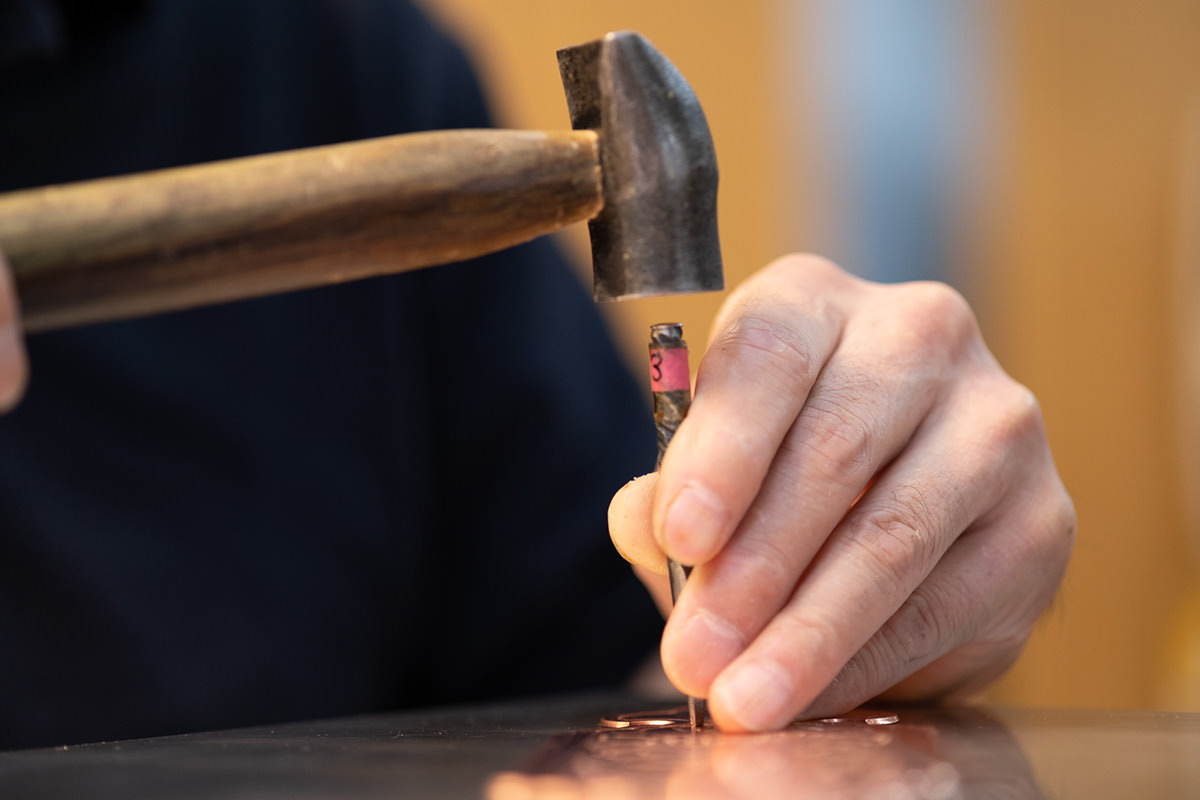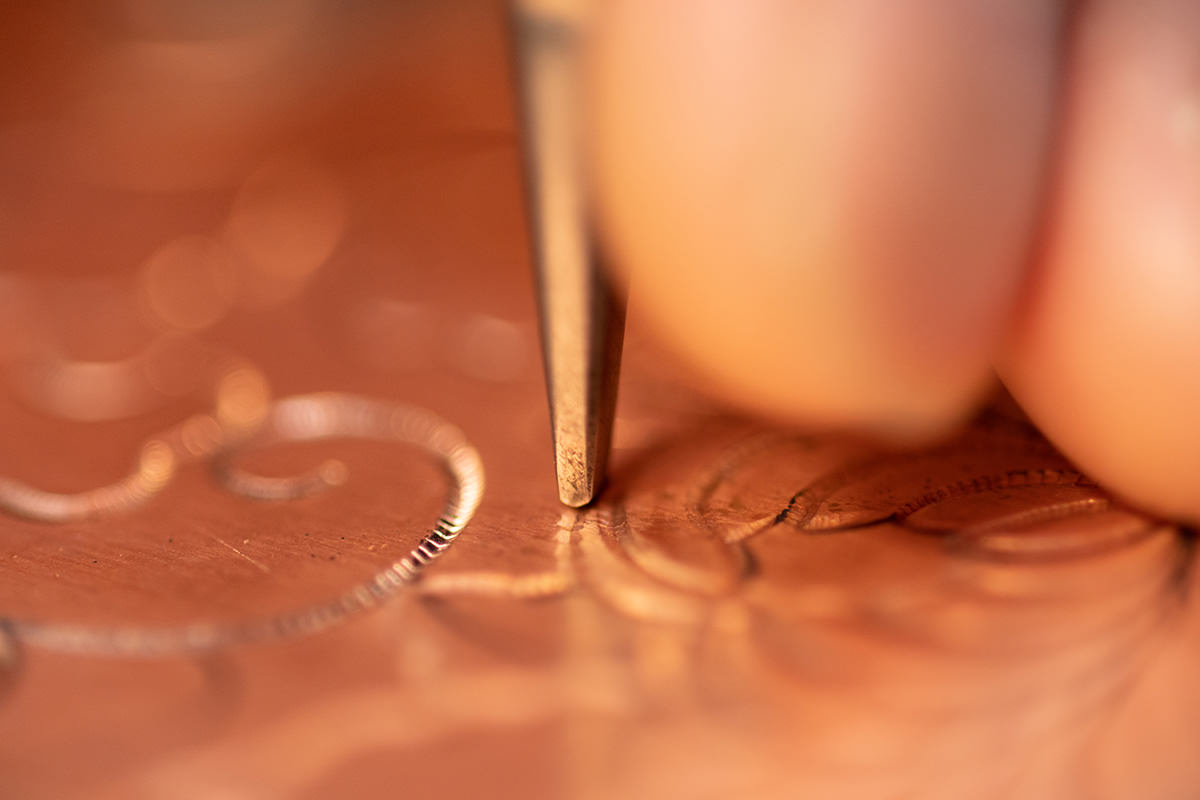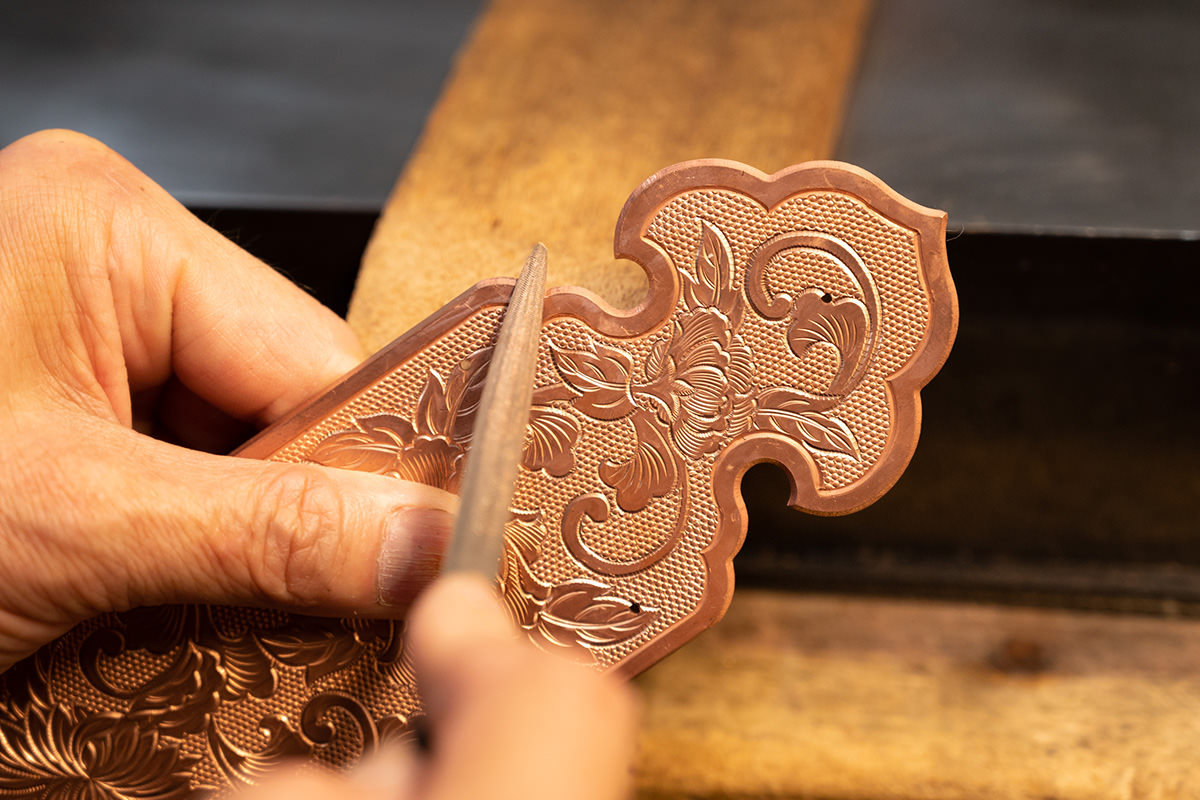The ornamental metal fittings used in Buddhist and Shinto altar implements and festival implements are called “kazari-kanagu.” The nuance communicated by the special Chinese character used to write this Japanese word is “more ornate and magnificent,” and as befits this weighty word, we diligently apply ourselves with pride and positive self-regard, day in and day out.
This company began in 1970, when the founder, Minoru Noyori, established the Noyori Shin-Butsugu Kazari-kanagu Shop on his own in Tachibana-cho, Naka-ku, Nagoya, Aichi Prefecture, a location that is center for the production of Owari Buddhist altar implements. The company hand-fashions ornamental metal fittings for shrines, temples, Buddhist altar implements, festival implements, and other such applications. In 1988, the second proprietor, Katsuhiko Noyori, took over operation and renamed the business “Noyori Co., Ltd.” He is a traditional craftsman who carries on the skills and techniques of Owari Buddhist altar implements, a traditional handicraft that has been continued since Japan’s feudal Edo period (approximately the year 1600).
Along with traditional techniques, the company has introduced new technologies, including CAD, NC engraving machines, and carbon dioxide laser machine tools, and in addition to the traditional techniques and skills of showy kazari-kanagu metal fittings, Noyori has also learned a richly diverse range of others as well, such as hammering, cloisonné, high relief, and inlaying, and puts these skills and technologies to full use in making kazari-kanagu, thereby accommodating fabrication of a diverse array of sophisticated products. The company also manufactures such handicrafts as incense burners and vases, and displays its wares at craft shows and art exhibitions.

